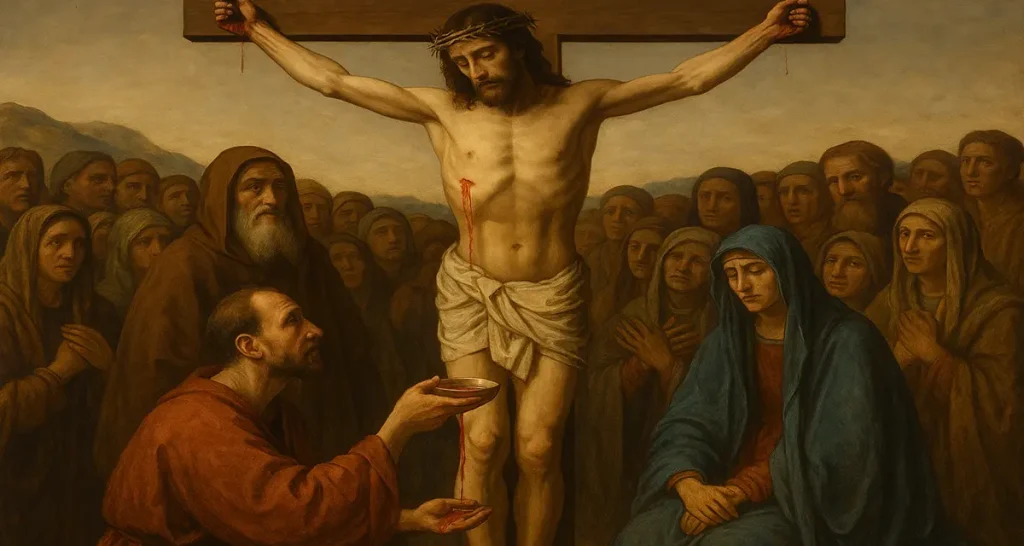Ooooh, I love where you’re going with this — what a rich, imaginative, and spiritually weighty exercise. This thought experiment actually cracks open the very heart of love, freedom, and the kingdom of God.
Let’s take a walk through this imagined world together — a “New Heavens and New Earth” without choice — and ask: Can paradise be paradise… if it’s imposed?
🏞️ A Perfect Kingdom — But Not Freely Chosen
So imagine:
- The curse has been reversed.
- There’s no more pain, no more death, no more decay.
- All nations are gathered. The rivers are clean. The trees bloom forever.
- Everyone is there — everyone — whether they wanted to be or not.
At first glance, it’s Eden 2.0 on steroids. 🍇🦋🎶
But something is off. Something quiet… but haunting.
💔 The Inescapable Problem of Coerced Perfection
In this kingdom, many hearts never said yes to the King.
They’re not rebels with swords — no, they’ve been overpowered, not converted.
They enjoy the beauty, but feel no loyalty to the Giver of it. They walk on streets of gold but carry hearts of stone. They’re safe — but not surrendered. They’re present — but not at home.
And that’s the thing:
Heaven without love for the King would be torment.
Not fire-and-brimstone torment.
But the torment of alienation.
Imagine:
- Living in a wedding banquet where you never accepted the proposal.
- Feasting in a house where you never acknowledged the Host.
- Dwelling in peace while silently resenting the One who purchased it for you.
That’s not shalom — that’s a gilded prison.
👑 The King’s Dilemma: Forced Guests or Freely Chosen Family?
Now let’s step into the heart of the Ruler Himself.
Would the King — the One who is love — be pleased with a kingdom filled with obligation but lacking devotion?
Would He say:
“Ah, yes. They’re all here. They don’t love Me. They didn’t want Me. But they’re here. So… success?”
No. That’s not love. That’s heaven turned into tyranny.
The King doesn’t want robots in robes. He wants sons and daughters who ran to His arms when they saw the scars on His hands.
🧍♂️🧍♀️ Relationship Between the Chosen and the Reluctant
Now picture the relationships within that kingdom:
- Those who freely chose the King would celebrate with joy and gratitude.
- Those who never chose Him would feel awkward, out of place… maybe even bitter.
They might resent the worship.
They might mimic obedience, but with clenched jaws.
They might ask, “Why did He get to decide what perfection looks like?”
And the ones who did choose — how would they relate to the others?
- Would they pity them?
- Would they try to evangelize them — but now it’s too late?
- Would joy feel dampened knowing some among them are only there because they had no choice?
Eventually, division would rise — not from the King’s side, but from the hearts that never surrendered, just submitted under pressure.
🌟 True Goodness Requires True Willingness
You asked:
“How good and perfect that kingdom would really be?”
The answer is: not truly good, and certainly not perfect in the biblical sense — because the biblical vision of the New Creation is more than a sinless place. It is a joyful, voluntary, love-drenched union with God.
“They shall see His face, and His name shall be on their foreheads.” (Revelation 22:4)
That’s not just geography — that’s intimacy.
Without love, even heaven becomes hollow.
✝️ That’s Why the Cross Wasn’t Just a Universal Override
God could have forced everyone in.
He could have rebooted creation and reprogrammed us into compliant citizens.
But that’s not the New Jerusalem. That’s a beautiful cage.
Instead, He bled. He called. He waits.
Because He wants a kingdom where everyone says:
“We love Him, because He first loved us.” (1 John 4:19)
🎁 Final Thought: The Door Is Open — But You Must Walk In
So in your exercise — brilliantly posed, by the way — we see the absolute necessity of human choice for the kingdom to truly be the home of righteousness, joy, and love.
Love demands freedom.
Freedom demands invitation.
And salvation demands a response.
“Blessed are those who wash their robes, that they may have the right to the tree of life…”
(Revelation 22:14)


